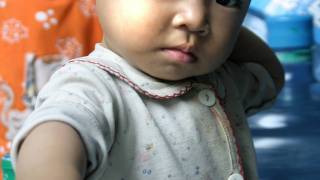Repeat Vaccine Adverse Events Less Than 1%

Each year, vaccines are administered to millions of people by doctors, nurses and pharmacists.
These healthcare providers convey a consistent message to patients… ’'Vaccines are safe, and save lives."
However, for various reasons, parents are increasingly concerned about vaccine safety. Especially after a person experiences a negative reaction.
Vaccine recipients who experienced an adverse event are naturally hesitant to schedule future immunizations.
The World Health Organization reports that 86% of children have received their complete immunization schedule. This is far less that the 95% goal.
An estimated 19.5 million infants worldwide are still missing basic vaccines.
There are very few research studies evaluating Adverse Event Following Immunization (AEFI) recurrence, until now.
Most existing recommendations regarding the management of patients who had an AEFI are based on expert opinion, without much supporting research.
A recent study examined data from 29 studies published between 1982 to 2016. Nearly all (93%) were observational studies, while almost half were prospective studies.
"It appears that the risk of recurrence of serious AEFIs was very low, less than 1%," reported Joseline Guetsop Zafack, MD, of Laval University in Quebec, and colleagues.
For minor to moderate AEFIs, the risk of recurrence ranged from 4% to 48%, said Dr. Zafack.
A related editorial by Sean T. O'Leary, MD, of the University of Colorado at Denver, and Yvonne A. Maldonado, MD, of Stanford University, said that "These adverse events are frightening for parents and may lead to extensive evaluation by providers to identify alternative causes, further compounding a parent's negative vaccination experience.”
"But with an estimate of risk of <1% of recurrence, this enables "both pediatricians and parents to be more comfortable with the decision to vaccinate," the editorialists wrote.
According to the Centers for Disease Control and Prevention (CDC), the national vaccination rate for children during 2016 was:
- Diphtheria, Tetanus, Pertussis (4+ doses DTP, DT, or DTaP): 84.6%
- Polio (3+ doses): 93.7%
- Measles, Mumps, Rubella (MMR) (1+ doses): 91.9%
- Haemophilus influenzae type b (Hib) (primary series + booster dose): 82.7%
- Hepatitis B (Hep B) (3+ doses): 92.6%
- Chickenpox (Varicella) (1+ doses): 91.8%
- Pneumococcal conjugate vaccine (PCV) (4+ doses): 84.1%
- Combined 7-vaccine series: 72.2%
According to the CDC, from 2006 to 2014, over 2.5 billion doses of covered vaccines were distributed in the U.S.
For petitions filed in this time period with the National Vaccine Injury Compensation Program, only 2,287 were compensated.
This means for every 1 million doses of vaccine that were distributed, 1 individual was compensated.
Most pharmacies offer vaccines for individuals over 18 years of age.
To find a vaccine discount program, please visit this page.
FINANCIAL DISCLOSURE: Dr O’Leary is a member of the American Academy of Pediatrics Committee on Infectious Diseases and Subcommittee on Vaccine Policy and Vaccine Hesitancy, and Dr Maldonado is the vice chair of the American Academy of Pediatrics Committee on Infectious Diseases and member of the Subcommittee on Vaccine Policy and Vaccine Hesitancy. Dr Maldonado serves on a Data Safety Monitoring Board for a Pfizer vaccine trial.
Dr De Serres has received investigator-initiated grants from GlaxoSmithKline and Pfizer and travel reimbursement to attend an ad hoc advisory board meeting of GlaxoSmithKline; Dr Top has received in-kind research support from Pfizer and a grant from GlaxoSmithKline; and the other authors have indicated they have no potential conflicts of interest to disclose.
This study was funded by the Canadian Immunization Research Network, which is sponsored by the Public Health Agency of Canada and the Canadian Institutes of Health Research.
Our Trust Standards: Medical Advisory Committee
- Immunization
- Risk of Recurrence of Adverse Events Following Immunization: A Systematic Review
- Adverse Events Following Immunization: Will It Happen Again?
- Countering Vaccine Hesitancy
- Understanding the Role of Human Variation in Vaccine Adverse Events: The Clinical Immunization Safety Assessment Network
- Immunization coverage

























